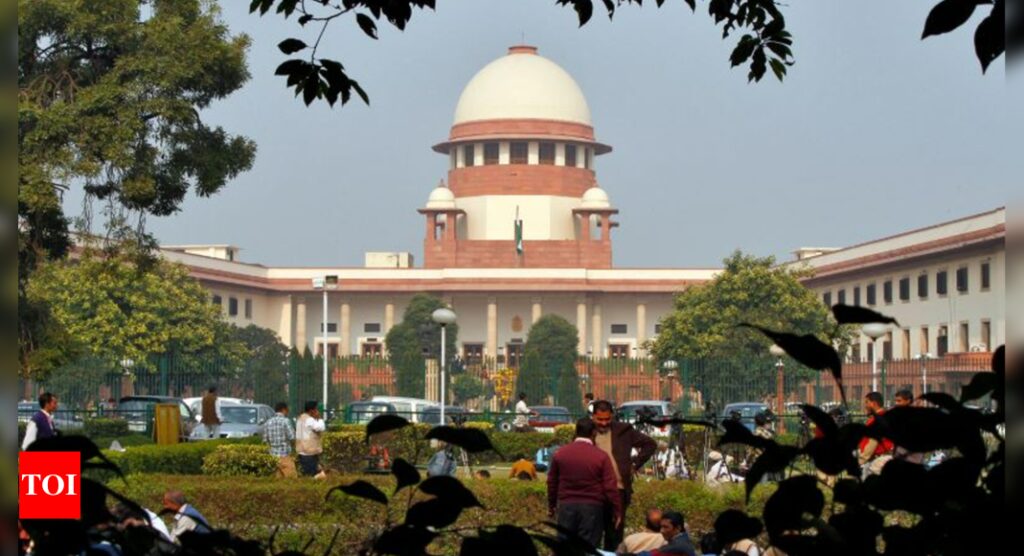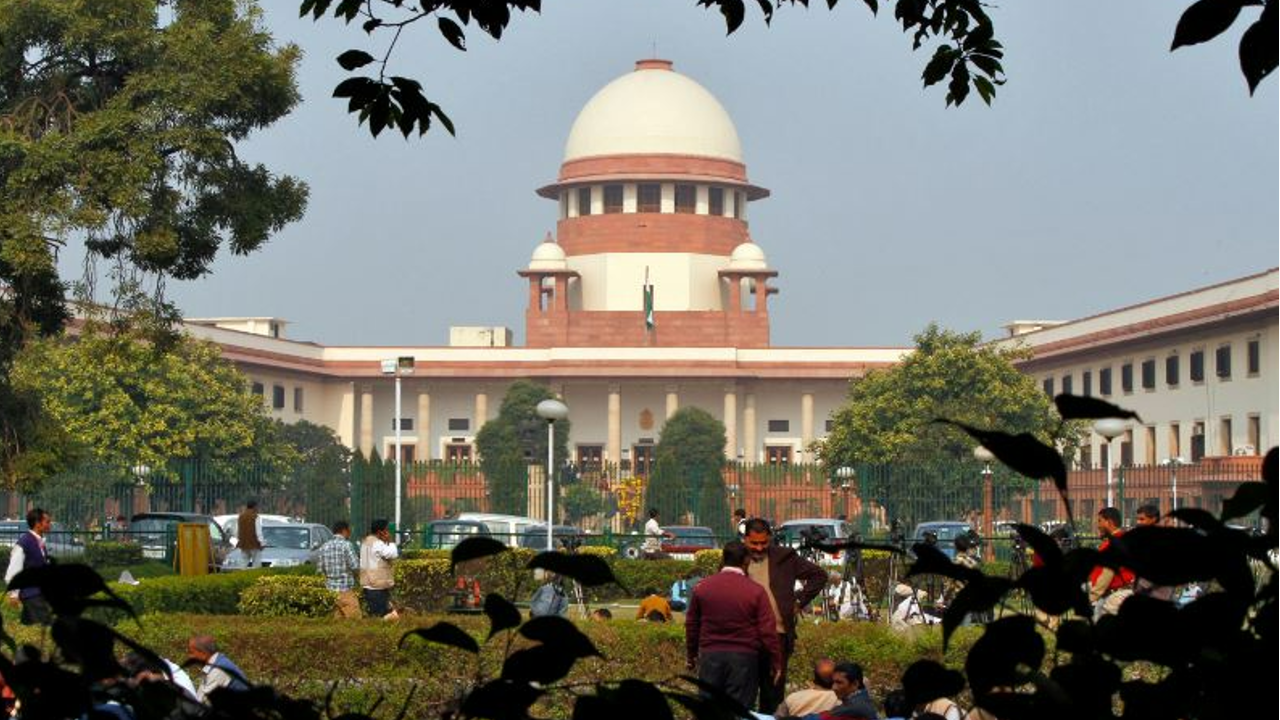[ad_1]
NEW DELHI: Pitching for reformative approach to justice and change of the government’s mindset to allow remission plea of convicts, the Supreme Court on Thursday said a person convicted of heinous offence should not be condemned to die in jail and should be released after spending a long period behind bars if his conduct has been good, reports Amit Anand Choudhary. A bench of Justices S Ravindra Bhat and Dipankar Datta came to the rescue of a convict who spent 26 years in jail in a murder case but his remission pleas were repeatedly rejected by the Kerala government over the years.
SC: Remission denial signifies society’s resolve to be harsh
The bench directed release of the convict who is now 65 years’ old.
Justice Bhat, who penned the verdict, said that not granting relief to such convicts is a reflection of unforgiving nature of society which should change.
“Excluding the relief of premature release to prisoners who have served extremely long periods of incarceration not only crushes their spirit and instils despair but signifies society’s resolve to be harsh and unforgiving. The idea of rewarding the prisoner for good conduct is entirely negated,” he said.
The convict was sentenced to life imprisonment for killing a woman and he has been in jail since 1989.
His remission plea was considered by Advisory Board nine times and on three of such occasions, the Board recommended his premature release. However, the state government rejected his request for pre-mature release every time.
Finding fault with the state government’s decision, the court quashed the order.
The court said that referring the case back to the state for re-consideration would further prolong his incarceration and directed his release from jail.
“Regardless of the morality of continued punishment, one may question its rationality. The question is, what is achieved by continuing to punish a person who recognises the wrongness of what they’ve done, no longer identifies with it, and bears little resemblance to the person he was years earlier,” the bench said.
In its verdict passed last month, the apex court had held that a government should not be guided only by the severity of offence or opinion of the trial court or police for deciding remission plea of a convict.
While deciding a plea filed by a convict who spent 24 years in jail in a triple murder case and whose remission plea was rejected on the ground of negative opinion from trial judge, the court said the decision on remission should not be taken on the basis of same judicial record. It added that the remission policy should be guided by “reformative” rather than “retributive” concept of justice.
SC: Remission denial signifies society’s resolve to be harsh
The bench directed release of the convict who is now 65 years’ old.
Justice Bhat, who penned the verdict, said that not granting relief to such convicts is a reflection of unforgiving nature of society which should change.
“Excluding the relief of premature release to prisoners who have served extremely long periods of incarceration not only crushes their spirit and instils despair but signifies society’s resolve to be harsh and unforgiving. The idea of rewarding the prisoner for good conduct is entirely negated,” he said.
The convict was sentenced to life imprisonment for killing a woman and he has been in jail since 1989.
His remission plea was considered by Advisory Board nine times and on three of such occasions, the Board recommended his premature release. However, the state government rejected his request for pre-mature release every time.
Finding fault with the state government’s decision, the court quashed the order.
The court said that referring the case back to the state for re-consideration would further prolong his incarceration and directed his release from jail.
“Regardless of the morality of continued punishment, one may question its rationality. The question is, what is achieved by continuing to punish a person who recognises the wrongness of what they’ve done, no longer identifies with it, and bears little resemblance to the person he was years earlier,” the bench said.
In its verdict passed last month, the apex court had held that a government should not be guided only by the severity of offence or opinion of the trial court or police for deciding remission plea of a convict.
While deciding a plea filed by a convict who spent 24 years in jail in a triple murder case and whose remission plea was rejected on the ground of negative opinion from trial judge, the court said the decision on remission should not be taken on the basis of same judicial record. It added that the remission policy should be guided by “reformative” rather than “retributive” concept of justice.
[ad_2]
Source link











More Stories
Congress replaces Kamal Nath, names an OBC as Madhya Pradesh chief | India News
Fire breaks out in ITBP camp in Srinagar; none hurt | India News
Parliament Security: Co-villagers give clean chit to Lalit Jha, parents to move court | India News